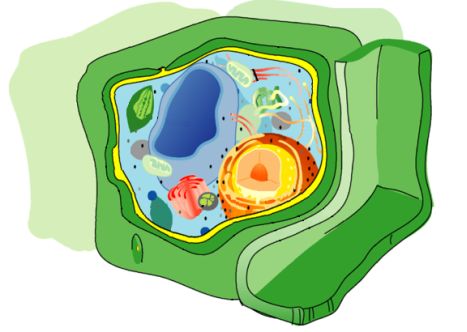
A cell wall is a tough layer of protection for some types of cells. Usually surrounding the cells and based outside the cell membrane, a cell wall serves various purposes in plants. Check out some of the reasons why plants contain these cell walls.
For Extra Protection against Damages
Plants are immovable and require more protection than animals. Thus, cell walls offer this protection to plants by providing them more structural strength. Having more strength helps plants to fight against external invasions by bacteria and fungi. Mechanical damage is also avoided in plants, as their cells contain cell walls.
For Retaining Plant Structure
As cell walls hold the structure and shape of a plant, these are very much required to maintain their rigidity and strength. A plant remains firm because of these cell walls. Plants are not like animals that do not require rigidity in their structure. That is the reason of plants having cell walls in them. If plants have a proper structure, they can grow in a right manner.
For Better Nutrition
A cell wall also regulates the transportation of nutrients in and out of a cell. Thus, plants get better nutrition due to these cell walls present around their cells. This further helps them to grow toward the direction of light, as well as attain water and minerals from their sources of nutrition. Growing in a correct way also helps plants receive the sunlight for their photosynthesis process.
For Maintaining a Filtering Mechanism
A cell wall is like a pressure vessel. When water starts entering the plant cells, these cell walls prevent their overexpansion. Thus, plants have cell walls to maintain a filtering mechanism.
Thus, cell walls serve a variety of purposes in plants and make them grow and develop naturally in the right way.